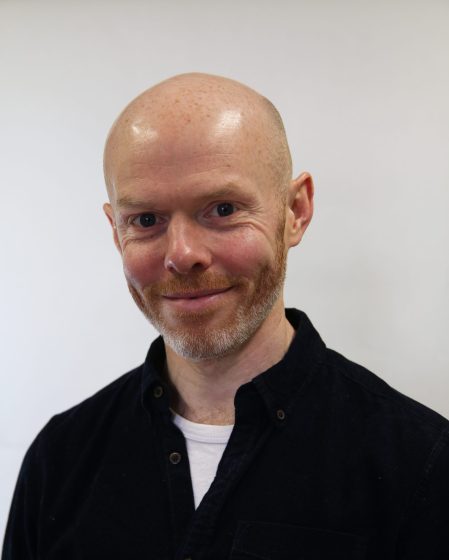Welcome to Seán Carroll Psychotherapy
Relational Therapy and Psychotherapy face to face in Bristol and online.


Therapy isn’t about giving you solutions or advice, but empowering you to make your own changes.
Life brings many challenges, and it is understandable that at times we might look for support in facing them. I believe that we all view and experience the world uniquely and psychotherapy offers an opportunity to explore our subjectivity in a non-judgemental way. Through examining our lived experience in depth we can reveal the rational and irrational dimensions of our character as well as our conscious and unconscious motivations. This can give us a firmer sense of identity and meaning.
I offer a chance to reflect on the difficulties or problems you are experiencing in a safe and confidential environment, with someone from outside your day-to-day life. Together we can explore your situation in a way that leads to fresh perspectives – and perhaps a new understanding of yourself.
About Me
Having lived in a variety of different countries as a child and adult I came to psychotherapy led by my urge to explore feelings of alienation and belonging. I am particularly interested in how feelings of isolation and estrangement can emerge through culture, relationships and inter-generational family history. In many cases, how we experience the world is shaped by our earliest life experience and exploring this in depth can be an important part of the work.
My professional background is in journalism, social research and education and my experiences in these fields have furthered my interest in the many forces shaping our identities. I believe that we all view and experience the world uniquely and psychotherapy offers an opportunity to explore our subjectivity in a non-judgemental way.
Through examining our lived experience in depth we can reveal the rational and irrational dimensions of our character as well as our conscious and unconscious motivations. This can give us a firmer sense of identity and meaning. I have been in private practice since 2016 and have previous experience working in bereavement counselling and through a low-cost therapy service in an NHS setting.

What Issues Can I Help With?
People come to me for help with a wide range of problems. Here are a few of the more common difficulties that can be supported through therapy and psychotherapy:
Trauma and unresolved childhood issues
Feelings of dislocation (lack of attachment, meaning and purpose)
Social anxiety
Grief and bereavement
Problems of confidence and self-esteem
Issues relating to sexuality
Anger and frustration
Personal identity and belonging
Isolation, alienation and loneliness
Masculinity and male identity
Depression and anxiety
Negative thought patterns and education/work based stress
Issues with relationships

Seán Carroll Qualifications
- UK Council for Psychotherapy Full Clinical Member (Membership number: 2011166526)
- MA Humanistic & Integrative Psychotherapy, 2022 (University of Middlesex)
- Diploma in Humanistic & Integrative Psychotherapy, 2022 (Bath Centre for Psychotherapy & Counselling)
- Foundation Certificate in Psychodynamic Counselling & Psychotherapy, 2014 (WPF, London)
- Master of Education, 2015 (Open University)
- MSc in Applied Social Research, 2007 (University of Dublin, Trinity College)
- BA in Journalism, 2004 (Dublin City University)

My Approach
My approach to therapy is person-centred and relational. This is a non-judgmental way of working, where the therapist creates the right conditions to help someone increase their self-awareness; to move towards – and reach – their fullest potential.
I also believe that what emerges between us in therapy can provide an opportunity to discover and reflect on ways you may relate in the wider world and how this way of relating may have been formed.
My location
My practice is based in 226 North St, Southville, Bristol, BS3 1JD and hold face to face psychotherapy sessions for clients in Bristol and the surrounding areas.
The Practice Rooms, 24 Regent St, Clifton, Bristol BS8 4HG
The Practice Rooms, 39 Cotham Hill, Redland, Bristol BS6 6JY
I also provide online therapy and psychotherapy sessions and can see clients throughout the UK. Contact me to find out more about how online therapy works.

Rates
As a UKCP-registered psychotherapist my fee for a 50-minute session is:
£50/session
Psychotherapy is typically open-ended and the number of sessions is dependent on you and your individual needs. This can be discussed in the initial assessment session. There is no obligation to continue beyond this session if you feel my approach is not suited to your needs.
Get in touch
Feel free to contact me if you have any questions about how therapy or psychotherapy works, or to arrange an initial assessment appointment. This enables us to discuss the reasons you are thinking of coming to therapy, whether it could be helpful for you and whether I am the right therapist to help.
You can also call me on +447597194439 if you would prefer to leave a message or speak to me first. I am happy to discuss any queries or questions you may have prior to arranging an initial appointment.
All enquires are usually answered within 24 hours, and all contact is strictly confidential and uses secure phone and email services.
Some frequently asked questions
Although what happens in sessions can be similar, counselling tends to be more short-term work. This typically involves a specific issue that requires processing in a way that is more predictable. Therefore, it is easier to envisage how many sessions may be required at the outset.
Psychotherapy is typically longer-term work that aims to explore more deep-rooted issues. People can often seek out psychotherapy when they are feeling stuck or at a point of crisis in their lives. Themes, patterns of relating and a sense of meaning can then emerge through the work. This can be transformative over time.
This depends on the person. Psychotherapy work is open-ended as it can take time for issues to emerge and our relationship to take shape. Usually more complex and deep-rooted feelings and behaviours can be difficult to process and require adequate space and a confidence in the work. More and more hidden layers of meaning can reveal themselves over time. Some people value the on-going support they get from therapy and continue to come for months or years.
Confidentiality is a key principle behind the work. Being able to speak in confidence without judgement makes the therapeutic relationship unique.
Although I aim to keep our work confidential certain legal obligations mean there are some instances where I may need to break it. Some situations (such as certain child protection issues) require me to disclose risk. In addition, if I believe that someone is at risk of seriously harming themselves or others, I may also need to think about sharing this information with relevant others. Such situations are very rare, and I would not share any information without discussing it with the client first.
Before thinking about working together on a longer-term basis we would meet for an initial consultation first. After this we usually reflect on the work again after six sessions. From that point the work is open-ended requiring a weekly commitment at an agreed time and place. This regular frame is important for the success of the therapy.
Ending the therapy is also a process that requires discussion and reflection. We would usually agree on the number of sessions required to bring your therapy to a close depending on how long we have been working together.
Sessions are paid by bank transfer or in cash. I usually ask for payment on a week-by-week basis before or on the same day as our session.
Some people choose to bring things to share but this is not required or expected. The non-directive nature of the work means that things usually emerge naturally. It is important that you feel that therapy is a place free of expectation and pressure.
©Seán Carroll Psychotherapy
powered by WebHealer
